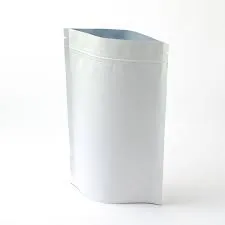- Afrikaans
- Albanian
- Amharic
- Arabic
- Armenian
- Azerbaijani
- Basque
- Belarusian
- Bengali
- Bosnian
- Bulgarian
- Catalan
- Cebuano
- chinese_simplified
- chinese_traditional
- Corsican
- Croatian
- Czech
- Danish
- Dutch
- English
- Esperanto
- Estonian
- Finnish
- French
- Frisian
- Galician
- Georgian
- German
- Greek
- Gujarati
- haitian_creole
- hausa
- hawaiian
- Hebrew
- Hindi
- Miao
- Hungarian
- Icelandic
- igbo
- Indonesian
- irish
- Italian
- Japanese
- Javanese
- Kannada
- kazakh
- Khmer
- Rwandese
- Korean
- Kurdish
- Kyrgyz
- Lao
- Latin
- Latvian
- Lithuanian
- Luxembourgish
- Macedonian
- Malgashi
- Malay
- Malayalam
- Maltese
- Maori
- Marathi
- Mongolian
- Myanmar
- Nepali
- Norwegian
- Norwegian
- Occitan
- Pashto
- Persian
- Polish
- Portuguese
- Punjabi
- Romanian
- Russian
- Samoan
- scottish-gaelic
- Serbian
- Sesotho
- Shona
- Sindhi
- Sinhala
- Slovak
- Slovenian
- Somali
- Spanish
- Sundanese
- Swahili
- Swedish
- Tagalog
- Tajik
- Tamil
- Tatar
- Telugu
- Thai
- Turkish
- Turkmen
- Ukrainian
- Urdu
- Uighur
- Uzbek
- Vietnamese
- Welsh
- Bantu
- Yiddish
- Yoruba
- Zulu
why is paper better than plastic
Why Paper is Better than Plastic
In today's world, the impact of materials on our environment has become a pressing concern. Among the materials dominating our daily lives, paper and plastic have emerged as two competing options for various applications. While plastic has been praised for its convenience and versatility, paper has distinct advantages that make it a superior choice in many cases. This article explores the reasons why paper is often better than plastic.
Why Paper is Better than Plastic
Secondly, paper products generally have a lower carbon footprint compared to plastic counterparts. The production of paper, particularly recycled paper, often emits fewer greenhouse gases than that of plastic. Moreover, paper can be recycled multiple times without losing its integrity, making it a sustainable choice for consumers and businesses alike. The recycling process for paper is well-established, with many communities offering convenient programs for paper collection and processing. In contrast, recycling plastic is more complicated, often leading to lower recycling rates and contributing to the accumulation of plastic waste in the environment.
why is paper better than plastic

Another advantage of paper is its versatility and functionality in various applications. From packaging to disposable items, paper can serve a multitude of purposes. For example, paper bags are biodegradable and can be used for carrying groceries or other goods without the harmful environmental effects associated with plastic bags. Additionally, paper products such as cardboard are strong and durable, making them ideal for shipping and storage solutions. In contrast, while plastic is often seen as durable, its long lifespan in the environment poses a significant threat. Plastic waste can remain intact for hundreds of years, adversely impacting wildlife and ecosystems.
Health considerations also play a role in the paper-versus-plastic debate. Studies have shown that certain chemicals used in the production of plastic can leach into food and drinks, potentially posing risks to human health. Paper, on the other hand, is generally considered a safer alternative for food and beverage packaging. For instance, uncoated paper and cardboard do not typically contain harmful chemicals, making them a more reliable choice for wrapping and serving food.
Furthermore, promoting the use of paper products supports sustainable forestry practices. Many paper manufacturers are committed to maintaining forests and ensuring that their sourcing is environmentally responsible. Certification systems, such as the Forest Stewardship Council (FSC), help consumers identify products made from sustainably harvested wood. By choosing paper, consumers can support these sustainable practices and contribute to the protection of global forests. In contrast, the production of plastic often does not involve similar accountability measures and can contribute to ecological degradation.
In conclusion, while plastic has its advantages, such as versatility and convenience, the benefits of paper outweigh those of plastic in many key aspects. The environmental impact of paper, its lower carbon footprint, versatility, health considerations, and the promotion of sustainable practices highlight why paper is often the better choice. As consumers become increasingly aware of the implications of their choices, shifting toward paper products represents a positive step in the quest for a more sustainable future. Embracing paper as a primary material can significantly reduce our reliance on plastic and contribute to a healthier planet for generations to come.













